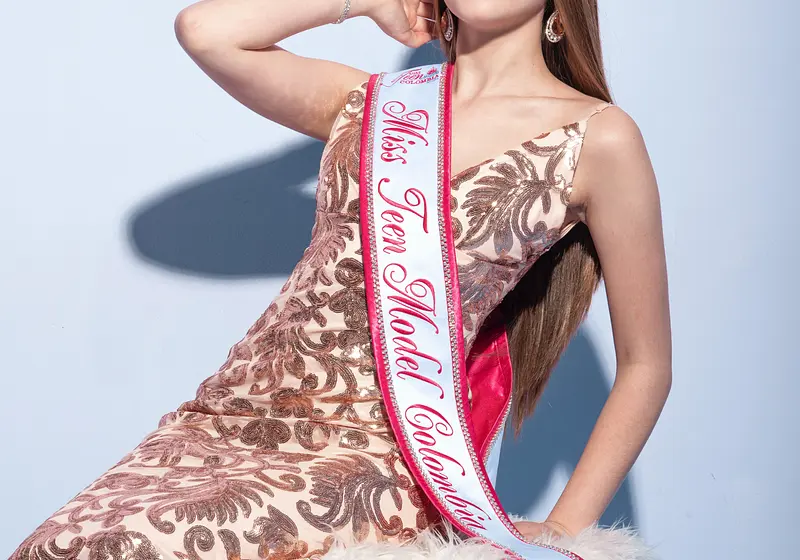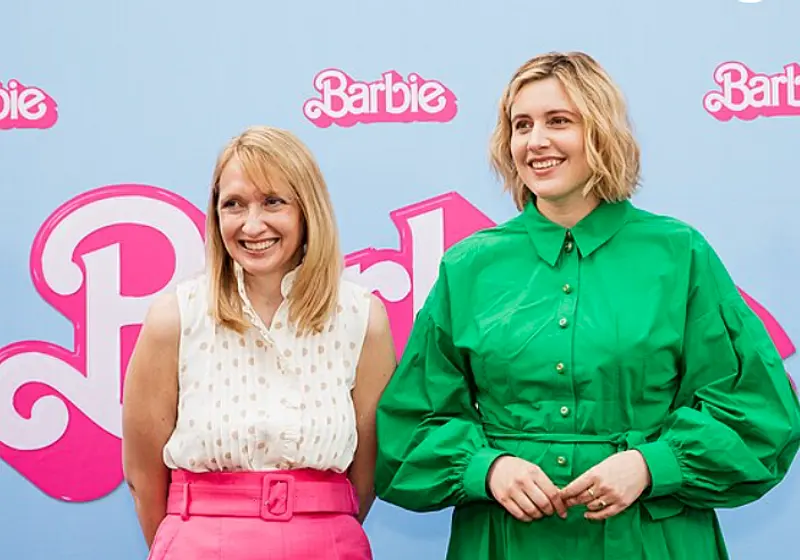Beauty pageants have a long-standing history as a form of competition where individuals showcase their physical appearance, talent, and personality. While they have gained popularity and continue attracting participants and audiences worldwide, pageant culture has been scrutinized for perpetuating various pitfalls, including racism, sexism, and bias.
Let us slide into your dms 🥰
Get notified of top trending articles like this one every week! (we won't spam you)I. Reinforcement of Harmful Stereotypes

Credit: Josue Velasquez from Pexels
Beauty Standards:
Pageants often enforce narrow beauty standards, emphasizing physical attributes such as slim bodies, specific facial features, and fair skin. These unrealistic standards can harm the self-esteem of participants who do not fit the idealized image, leading to body image issues and psychological distress. Examples of beauty standards today are an hourglass figure, meaning an incredibly slim waist but a large bust and rear.
This body shape is incredibly rare to find naturally and also impossibly hard to achieve. Because of this standard, many young girls feel the need to undergo plastic surgery, which can be very risky. Others opt for developing food disorders, such as anorexia.
These standards are harmful because they perpetuate unrealistic and unattainable ideals, leading to many negative consequences. They can contribute to body dissatisfaction and low self-esteem, as individuals feel pressure to conform to an idealized image that may not align with their natural appearance.
Moreover, beauty standards can reinforce harmful stereotypes, promoting a limited and narrow view of beauty that excludes diverse body types, ethnicities, and cultural backgrounds. This exclusion can lead to feelings of alienation and self-doubt among those who do not fit the conventional beauty mold. Overall, the imposition of beauty standards is detrimental, as it places an undue emphasis on external appearances rather than valuing individuals for their unique qualities and contributions beyond their physical attributes.
Racial Stereotyping:
Racial stereotyping in beauty pageants is a distressing issue that highlights the deeply ingrained biases and prejudices within these competitions. In many instances, contestants from diverse racial backgrounds often face discrimination and unequal treatment compared to their white counterparts.
Eurocentric beauty standards, particularly the classic look of blonde curls paired with big blue eyes, prevail, marginalizing contestants with darker skin tones, distinct facial features, and non-Western cultural backgrounds. Judges and audiences may unconsciously or consciously favor participants who conform to these narrow standards, perpetuating the notion that certain races or ethnicities are more attractive or desirable.
This kind of racial stereotyping not only reinforces harmful stereotypes but also diminishes the value and beauty of diversity. It is crucial for pageants to actively address and combat racial bias, celebrate the uniqueness of contestants from all racial backgrounds, and promote a truly inclusive and equitable platform that values and embraces beauty in all its forms.
Only Beauty:
While beauty pageants claim to be platforms celebrating talent and intellect, they frequently prioritize superficial qualities over genuine abilities. Despite their purported emphasis on talent segments, such as singing, dancing, or public speaking, contestants' physical appearance often takes center stage.
The contestants' beauty, poise, and stage presence tend to overshadow their actual skills and accomplishments, sending a message that external attractiveness is more crucial than talent or intellect. This fixation on superficial qualities undermines the true essence of a talent competition and perpetuates the objectification of participants, reducing them to objects of beauty rather than individuals with unique abilities and intelligence.
As a result, the focus on appearances in pageants diminishes the opportunity to showcase genuine talents and contributions, and it is imperative to shift the emphasis back to recognizing and celebrating the diverse skills and intellects of the contestants.
Take the Quiz: Which Indian city is the perfect holiday spot for you!?
Let's match you with an Indian city that you would love!
II. Sexism and Gender Bias

Credit: Mateus Souza from Pexels
Objectification of Women:
Beauty pageants have long been criticized for objectifying women, reducing them to mere objects of beauty and physical attractiveness. Contestants are judged primarily based on their looks, emphasizing their appearance, figures, and poise.
This narrow focus on external features perpetuates the harmful notion that a woman's worth is determined by her physical attractiveness, reinforcing deeply ingrained stereotypes and societal pressures on women to conform to unrealistic beauty standards. Moreover, the swimsuit and evening gown rounds further contribute to objectification, reducing participants to having their bodies on display for the audience's entertainment.
By prioritizing physical appearance over talent, intellect, and character, beauty pageants foster a culture that commodifies women and perpetuates the notion that their value lies primarily in their looks rather than in their achievements, aspirations, and contributions to society. This objectification not only undermines progress toward gender equality but also hinders women's empowerment as individuals deserving of respect, recognition, and opportunities beyond their physical appearance.
Gender Roles:
Beauty pageants reinforce traditional gender roles by perpetuating a stereotypical and outdated view of women's societal roles. These competitions often emphasize and reward traits such as femininity, poise, and nurturing qualities while downplaying attributes like ambition, assertiveness, and intellectual prowess. Participants are encouraged to adhere to conventional beauty standards, portraying them as objects of desire and reinforcing that a woman's worth is primarily determined by her physical appearance.
The pageant culture emphasizes external beauty and presentation, reinforcing the notion that women should prioritize their looks and conform to societal expectations of femininity. Additionally, the gendered categories in pageants, such as "Miss" and "Mrs.," further perpetuate the idea that a woman's marital status defines her identity. By promoting and rewarding these traditional gender roles, beauty pageants hinder the progress toward gender equality and send a regressive message to younger generations about the limited roles women are expected to fulfill in society.
Age Disparity:
Beauty pageants often reinforce age disparities, particularly when it comes to the treatment of female participants. While male contestants are often judged based on their talents and intellect, female contestants, especially in child beauty pageants, face heightened scrutiny on their physical appearance from an early age. These competitions prioritize youthfulness and external beauty, leading to an intense focus on contestants' looks rather than their talents or achievements.
As a result, young girls may internalize that their value lies primarily in their appearance, contributing to body image issues and self-esteem problems. Moreover, as contestants age, they may face diminishing opportunities and recognition within the pageant circuit, reinforcing that beauty is synonymous with youth.
This age disparity perpetuates harmful stereotypes and pressures young girls to prioritize their looks over personal growth, education, and other aspects of their identity. Beauty pageants must reconsider their emphasis on age-related beauty standards and create an inclusive environment that values participants of all ages based on their talents, accomplishments, and individuality rather than perpetuating a culture that marginalizes contestants as they grow older.
III. Addressing the Pitfalls and Fostering Change

Credit: Kristal Tereziu from Pexels
Pageants must actively promote diversity and inclusivity by embracing contestants from diverse racial, ethnic, and cultural backgrounds. Representation matters, and by celebrating different forms of beauty, pageants can challenge harmful stereotypes and promote acceptance. Furthermore, pageants should focus away from physical appearance and on participants' talents, intellect, and contributions to society. This change would empower contestants to showcase their abilities and inspire others through their achievements.
Finally, properly educating judges and audiences about the dangers of perpetuating stereotypes and biases is crucial. This includes raising awareness about unconscious biases and promoting a more equitable and open-minded approach to judging participants.
While beauty pageants have been celebrated as platforms for self-expression and talent, they are not immune to the pitfalls of racism, sexism, and bias. The perpetuation of harmful stereotypes, objectification of women, and the marginalization of contestants from diverse backgrounds warrant serious introspection and change within pageant culture.
By embracing diversity, shifting focus, and educating stakeholders, pageants can evolve into inclusive platforms that celebrate individuality, talent, and genuine accomplishments rather than perpetuating antiquated norms and biases. Only by acknowledging and addressing these issues can pageant culture become a positive force that empowers individuals and inspires positive societal change.













